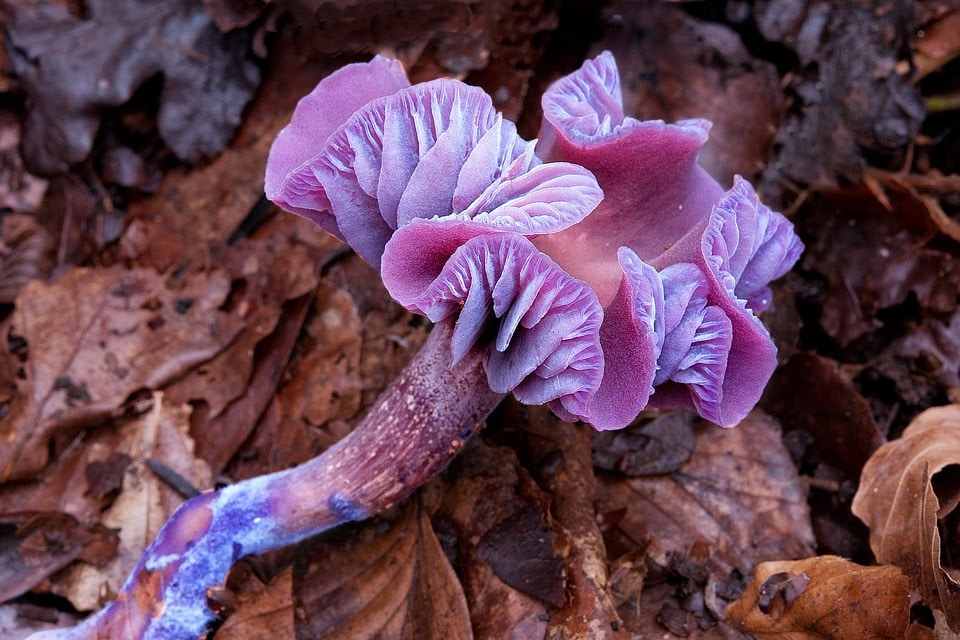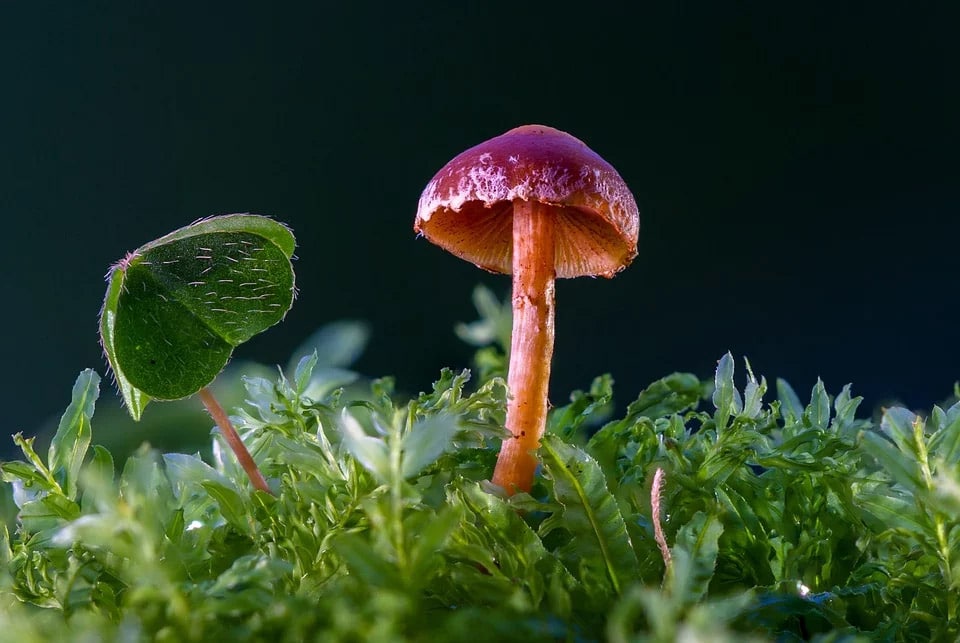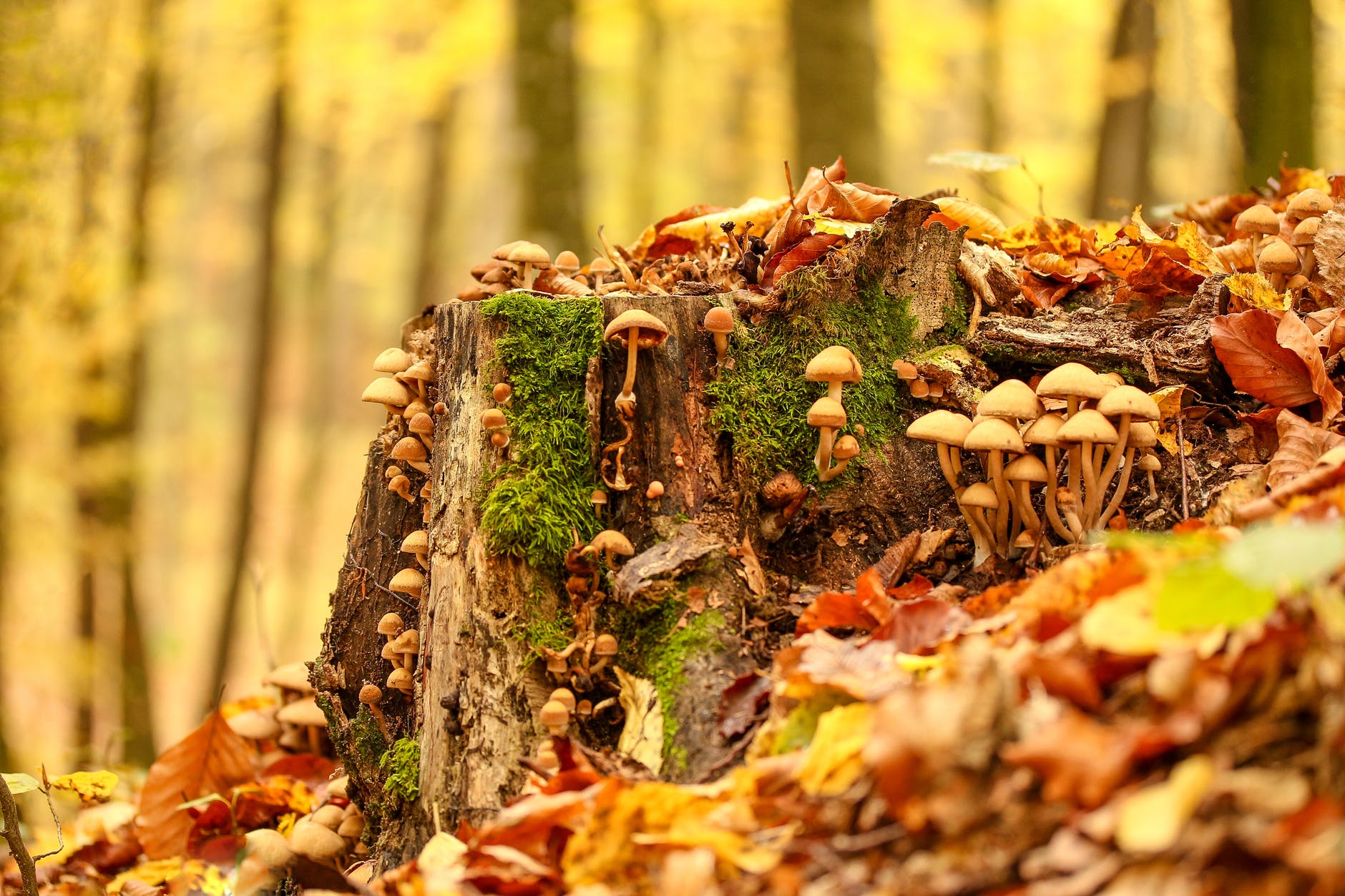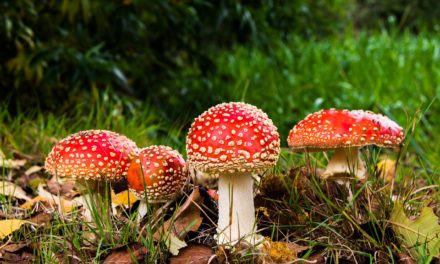
In this continuing conversation with filmmaker Louie Schwartzberg (first interview here), we talk about compost, drug laws, and the upcoming global release of Fantastic Fungi on March 26th.
Thanks again for speaking with us, Louie. Fantastic Fungi was 13 years in the making, and I’m curious: was including psychedelic therapy and magic mushrooms part of the original vision? Did it start off as just time lapses of the fungal kingdom and adopt the psychedelic angle later as research into psychedelics started being done again?
For sure, I always wanted to have the aspect of mushrooms being able to shift consciousness as part of the film. If I’m going to tell the story of mushrooms, it’s a giant story—it really should be a ten-part miniseries, because it involves healing the planet, healing your body, and healing your mind. That’s a lot of stuff to cover, and that’s what the film does. It talks about bioremediation, like cleaning up oil spills; it talks about Lion’s Mane helping with Alzheimer’s and memory loss, Turkey Tail for cancer, and the many positive ways to use mushrooms for health. And the third part certainly is the fact that there’s this molecule that is a perfect fit into a receptor of the brain that can help you have a mystical or spiritual experience. Wow, what a gift that is! That can’t be random chance; that has to have some type of divine intelligent intention. I don’t know how, why, who, or what, but I do honor it as a miracle.
I think it was Einstein who said that you can look at the world like everything’s a miracle, or you can look at the world like everything is not a miracle.
Yes, and if we have that choice, why would you choose not to see the miracles, when they are everywhere?
Exactly. Everything is dead and redundant, or it’s all alive and connected. I think that’s what Einstein was trying to say, and that’s what I think the film is saying—it’s all alive, and we’re all related, and it’s all one.
I studied and practiced permaculture for many years, and I remember it was such a revelation for me as someone who grew up in the suburbs of Los Angeles originally, moving out to the country, starting a farm and getting in touch with the soil, realizing the magic of life that’s in the soil. All of life depends on the soil and the fungi and microorganisms within it.
The thing about mushrooms is they are an interface between the plant world, the animal world, and the mineral world. That’s why it’s so amazing. There are billions of microorganisms in a handful of soil, and when you get into gardening, it’s all about the soil and the compost in the garden. Now that I compost, I’m like, “Look at this chopped up celery or beets or lemon…” I take that and I say, “Man, the gardens gonna love that!” And it feels good even at that stage before you put it in the dirt: “Look at what I’m going to put in the garden!” You get a high doing that.
Yeah, and I feel like most people think of soil as dirt. There’s this negative connotation— what could be more useless than dirt? When the truth is, all of the vitality and all life on the planet rests in the vitality of the topsoil. I feel like the fungal kingdom and the process of decomposition puts everything into a kind of balance; it really completes the cycle. It’s that missing piece between the plant kingdom and the animal kingdom that we’re within, and even the mineral kingdom. It brings this sense of balance and completion to this whole cycle of life.
I totally agree, you get it.
Fantastic Fungi Day is coming up on March 26th. Tell me about it and how you feel about releasing the film to a wider audience.
So we started the release of this film with Denver, because that’s where the decriminalize movement really launched. It was going to play for a week, but it ended up playing for something like 12 weeks straight. What we’re doing that’s unique is we’re not just showing the film, we are holding spaces for conversations to happen after the film. In Denver for example, we had the leaders of the Decriminalize movement in attendance and people were able to ask questions and have a conversation about what’s going on legally in Denver. We’ve been pulling in these local groups at each showing, and cultivating connections that are face-to-face, not just on digital devices.
Had I given the film to a digital platform like Amazon or Hulu or Netflix, it would have prohibited the ability to do the theatrical release. The goal that the mushrooms instructed me to do was to mirror the mycelial network and bring what’s below the ground above the ground, by having people come together and create connections. That’s what we’re doing; that’s the core of what’s leading up to March 26th. We’re going to mirror the mycelial network on a global scale by linking together hopefully up to 500 theatres and 70 or 80 universities and colleges to watch the film together in one evening. There will be different time zones, but we will all be together watching the film and streaming a live Q&A with Paul Stamets and myself and other guest presenters. We really want to amplify that idea of interconnection. It’s really important for us to realize there may be more of us than we think.
And the timing is genius. I’ve worked on it for 13 years, and you might ask the question, why now? Well, because the mushrooms decided that now is the time! Had I released it two years ago, or three years ago, you know the timing wouldn’t be as good. Right now it’s perfect. I’m letting the mycelial network be my manager and distributor and guide me on the journey of how we share this wisdom with the greatest number of people on the planet.
That’s beautiful. Last thing I’d love to hear your take on: what is your personal sense of what the mushrooms want when it comes to full legalization vs. decriminalization? There’s been some debate by different voices and factions about what may be better. Do we make them fully legal, or just make them medicine? How much do we regulate them? Do mushrooms want to be completely free?
I think eventually they have to be free. I mean, it’s just a mushroom. It doesn’t break any laws. Before Richard Nixon decided to make them illegal, mushrooms were never historically illegal. And Nixon did it as a weapon against his political enemies—the anti-war protestors and the people of color and other people on the Left. Mushrooms need to be free because it’s really the same as what’s going on with cannabis. First, we had to decriminalize it for medical uses— glaucoma, seizures and all kinds of diseases and chronic conditions. And then it became kind of a joke that you could open up the Hollywood Reporter and see a doctor ad saying, “Call me and get a prescription for $100.” And now, of course it’s totally legal here in California.
Maybe those are the steps it has to follow. It will go through decriminalization for therapy purposes first. I think it could be just as easily regulated like alcohol, so you have to be 18 years old to buy it. The important thing about legalization is that it becomes available for regular, high achieving people. If at the end of the day when you put your kids to bed, you want to take a toke and watch Moving Art on Netflix—plug—why shouldn’t you be able to do that? If that makes you a little happier, a little more joyful so that you can be a more present with your partner, child, parent or employee, then why not? It belongs to the normal, happy people too.
What’s going on now with all of the trials of psilocybin is that for the most part, they are targeted toward people with alcohol addiction, cocaine addiction, end-of-life severe diagnosis, and other chronic conditions—which is great because it’s really important to help people who are suffering—but then you ask the question, well, why not for everyday people? I know that cannabis helps me just as much as sitting in the hot tub helps me, and I don’t have to be a sick person to have a jacuzzi, right? I don’t need to go to the hospital and say, “Oh my back is killing me, I need physical therapy” and have them prescribe yoga and put me in a hot tub. I want to be healthy and happy and have longevity, and I should have access to these things as life enhancers and preventative medicines.
I couldn’t agree more. Any final thoughts that you or the mushrooms would like to share?
The mushrooms are using me and the film as a vehicle to express themselves. So how do they communicate? They communicate as plants and fungi do—chemically—with aroma, molecules, nutrients, and the underground mycelial network. How else are mushrooms going to talk to us? They’re not going to develop a verbal language, so the only way they can speak to us is through chemistry. The message that I and many others have received is that they want us to live in harmony with the planet so that life can flourish. That’s what they do, and that’s what they want us to do.
We are very grateful to Louie for taking the time to speak with us. You can learn more about Fantastic Fungi: The Magic Beneath Us here, and learn about Fantastic Fungi Day on March 26th here.











